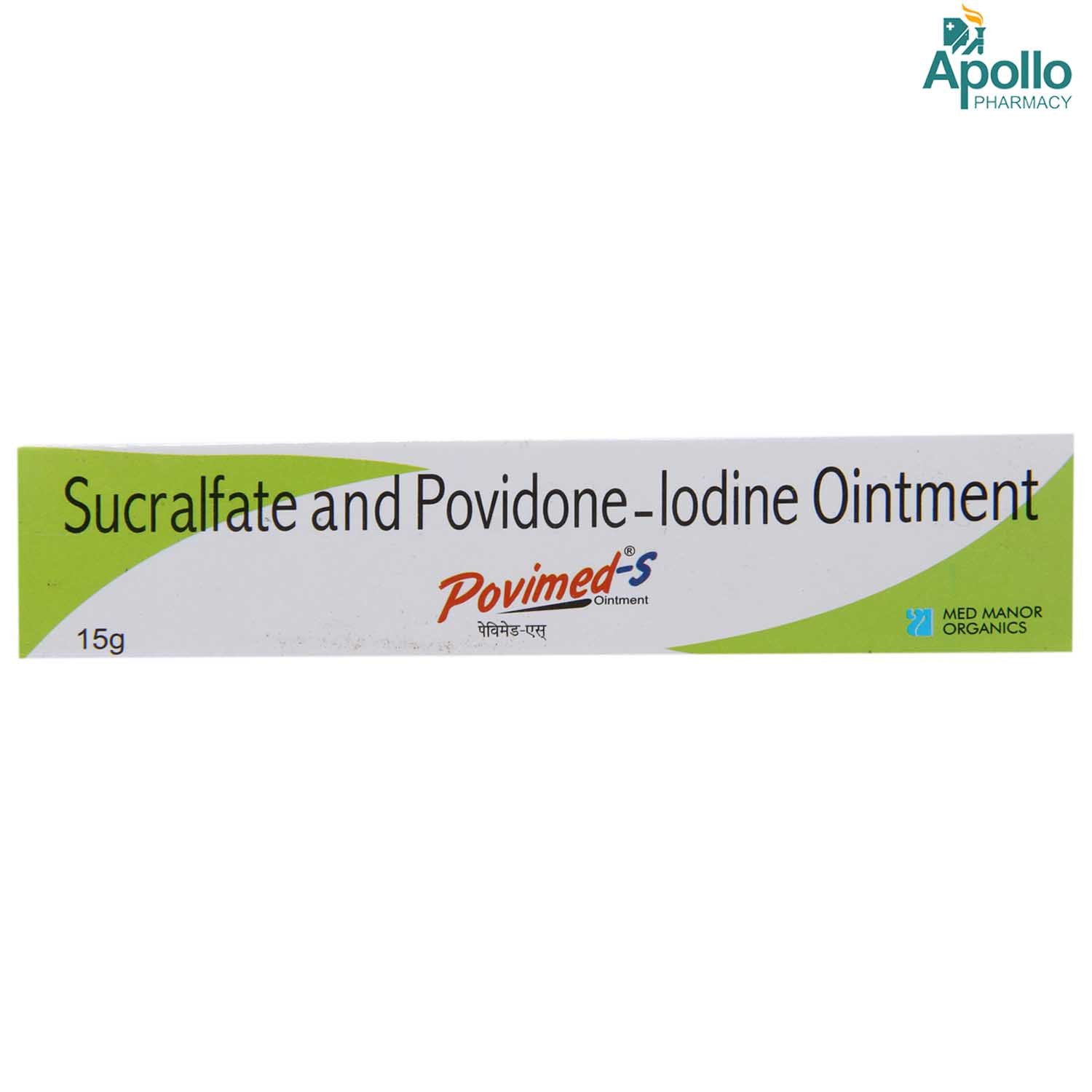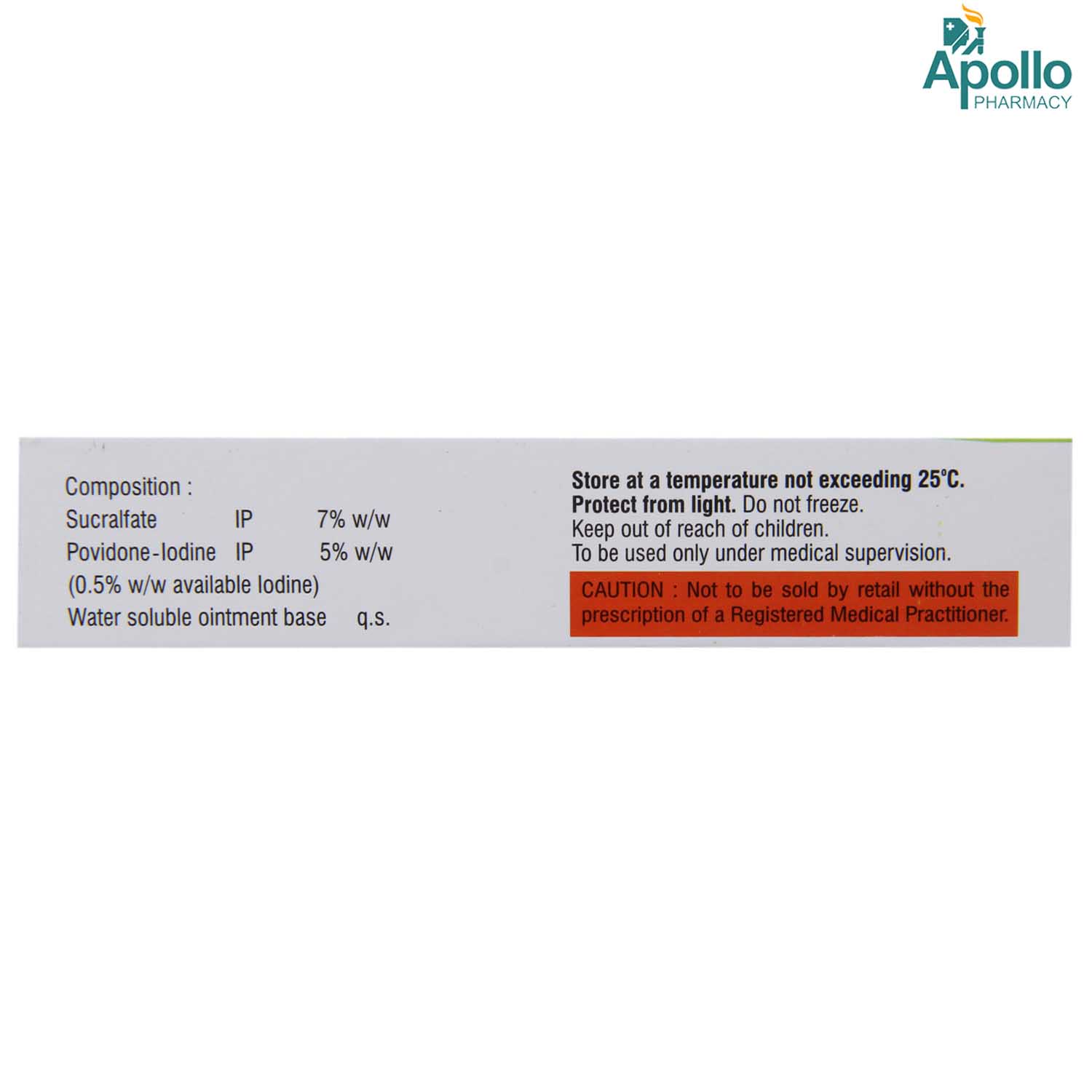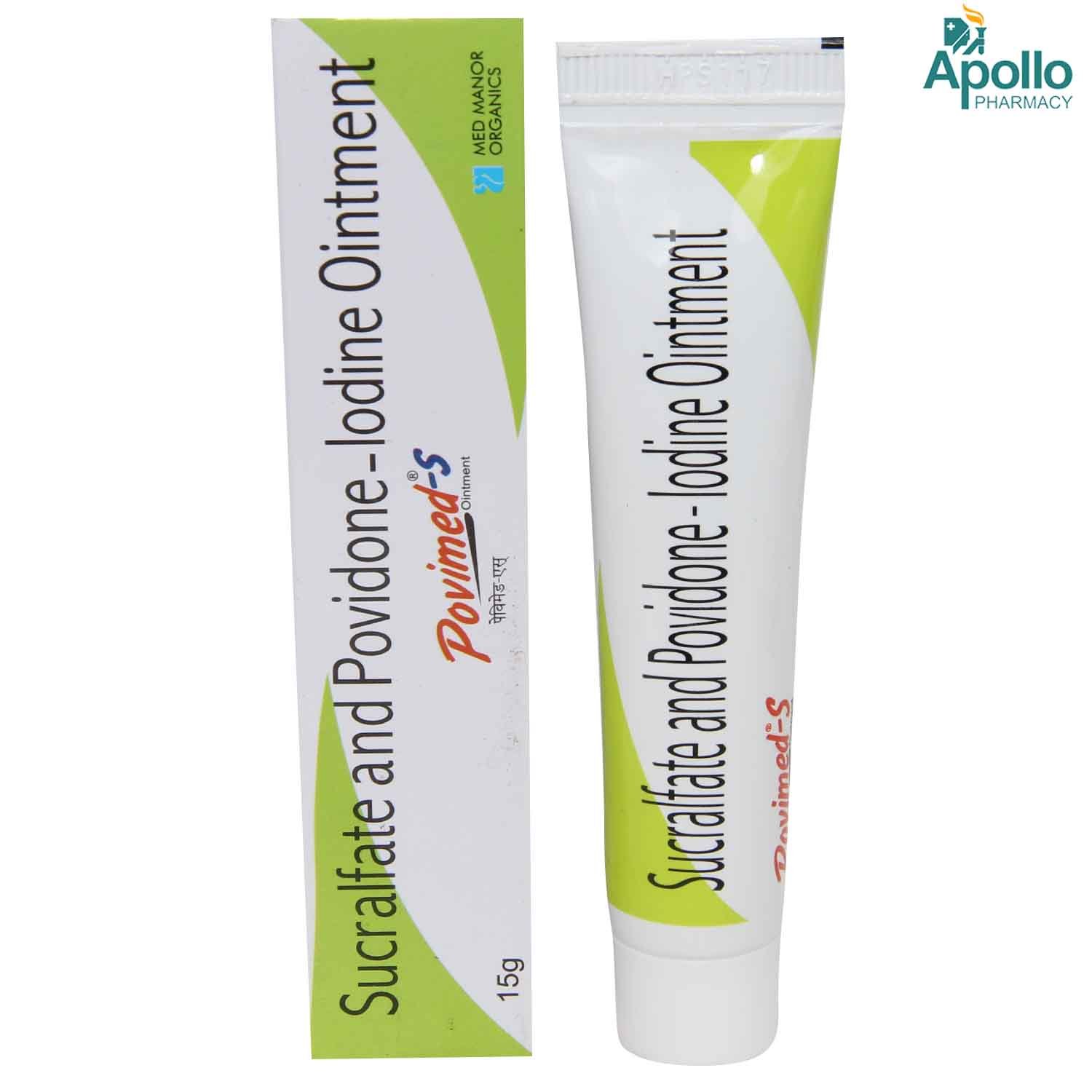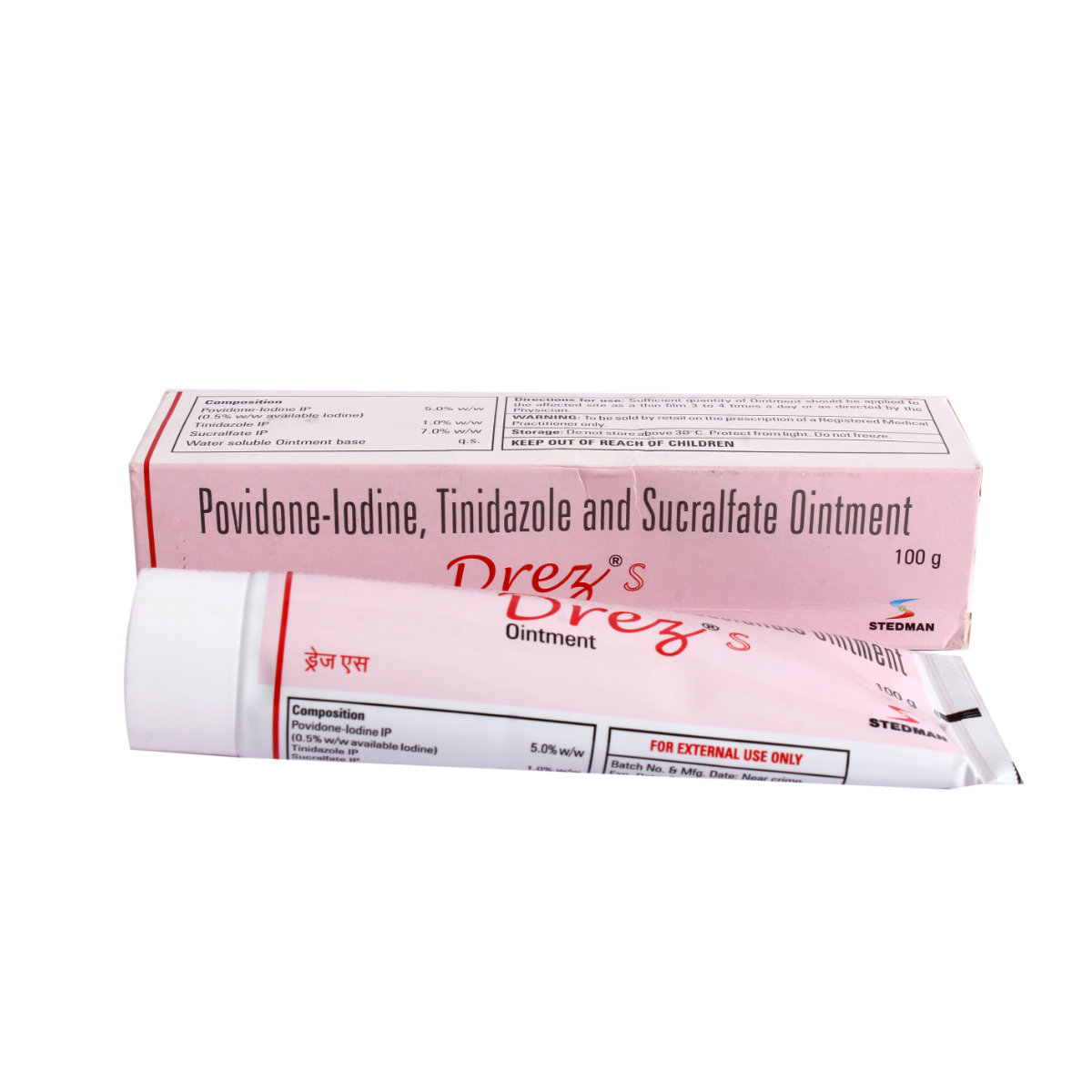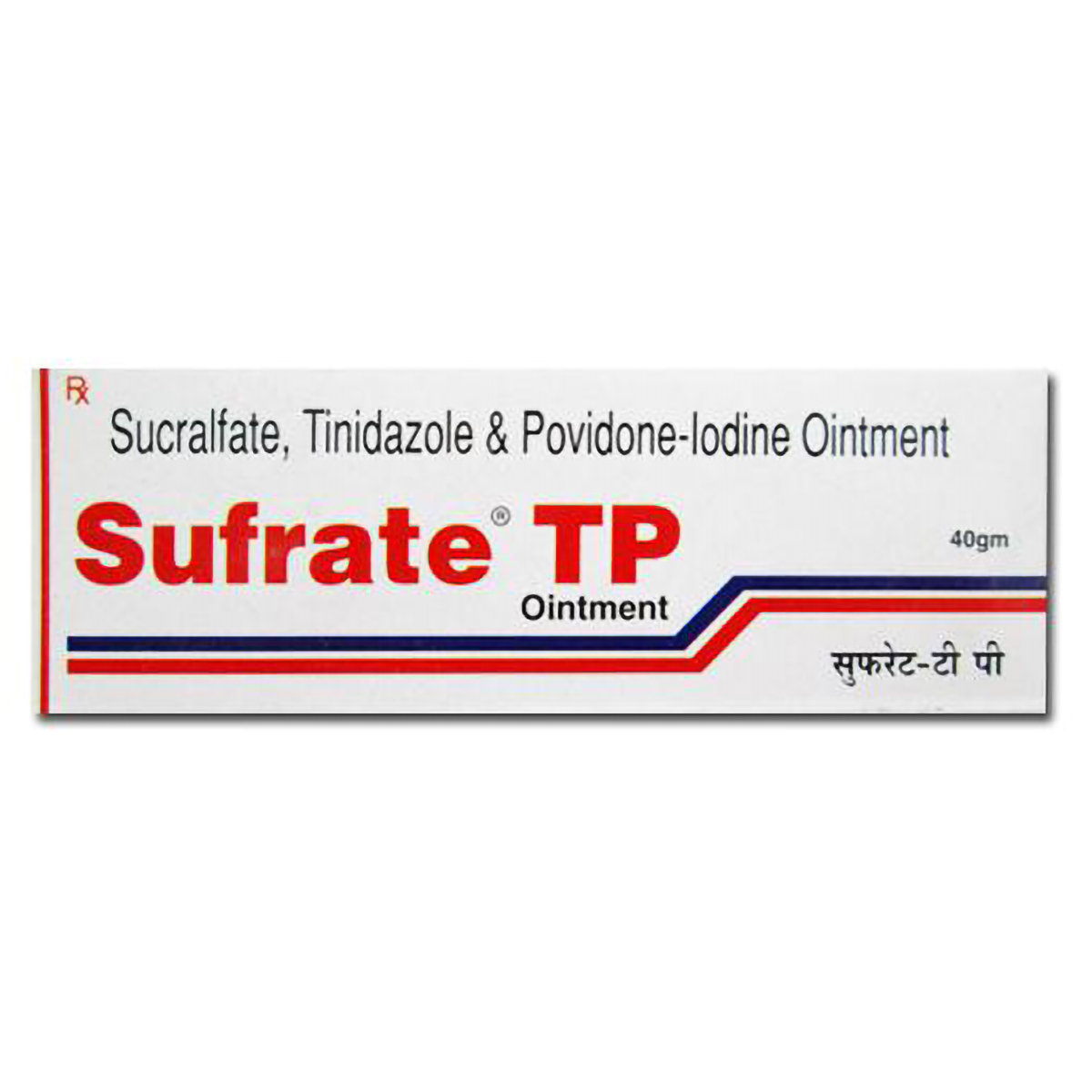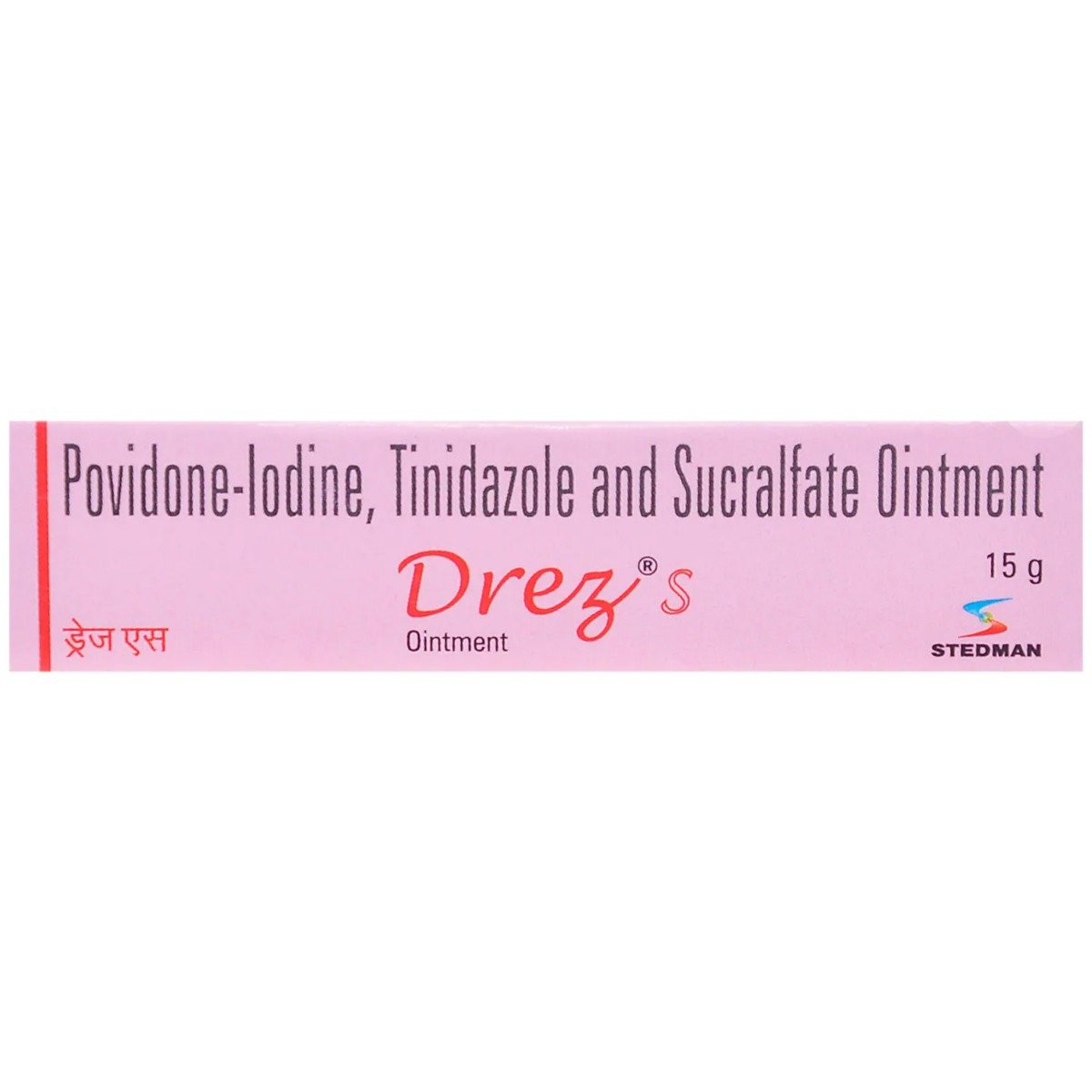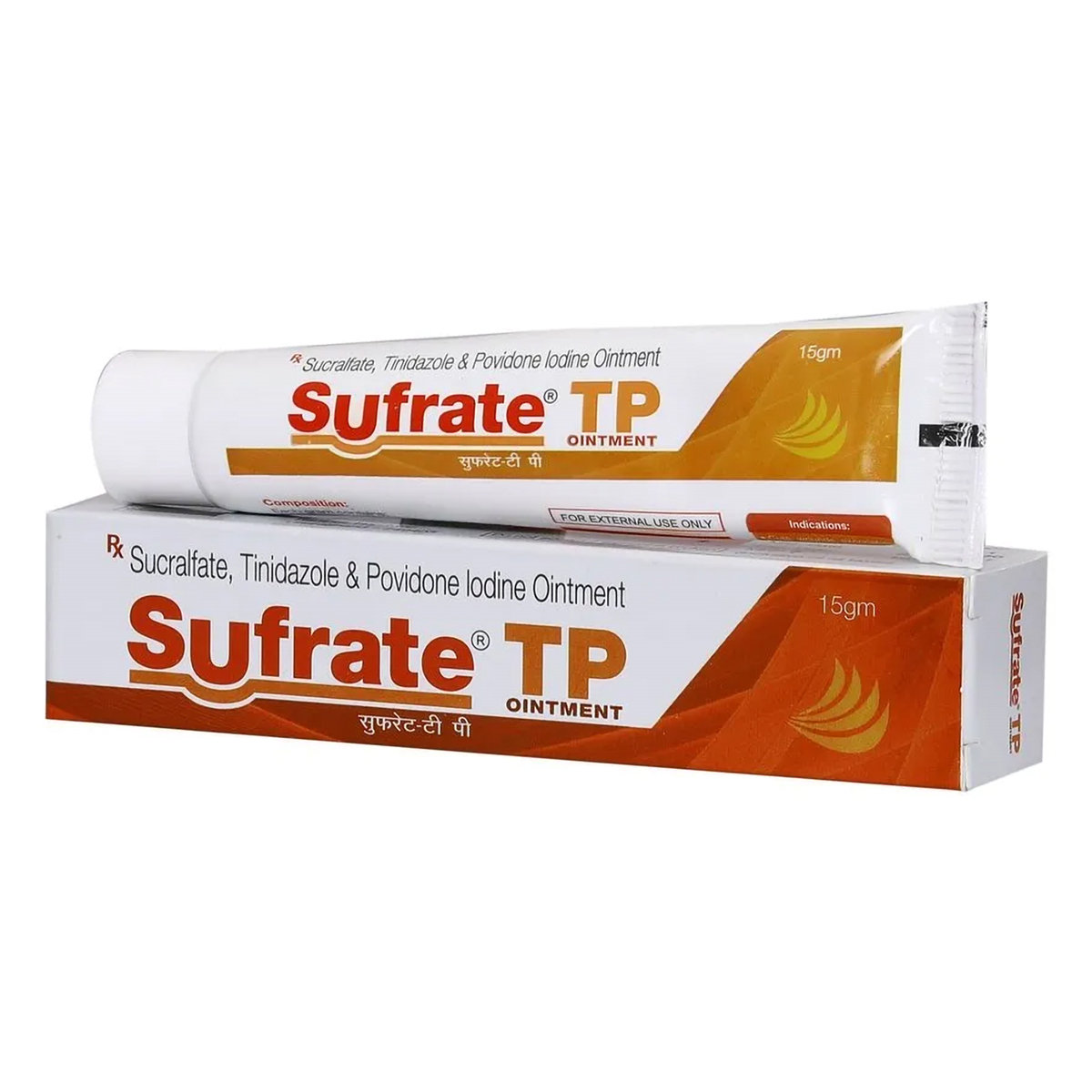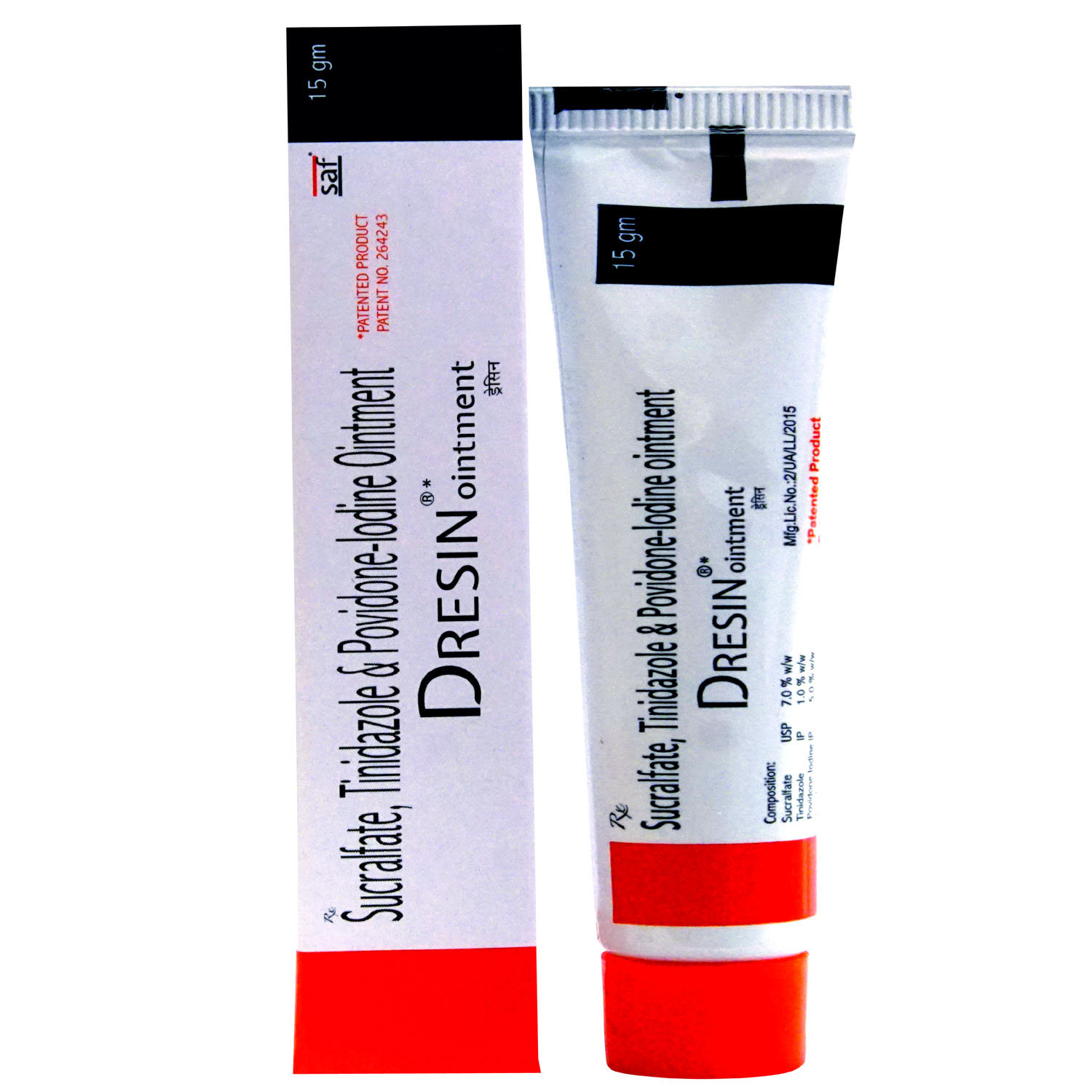Povimed S Ointment 15 gm
MRP ₹95.5
(Inclusive of all Taxes)
₹14.3 Cashback (15%)
Provide Delivery Location
Online payment accepted
 Prescription drug
Prescription drugWhats That
Manufacturer/Marketer :
Consume Type :
Expires on or after :
Return Policy :
About Povimed S Ointment
Povimed S Ointment belongs to the class of antiseptic and antibiotic drugs, primarily used to treat minor wounds and infections. It effectively treats lacerations (deep cut in the skin), abrasions (the first layer of skin is scraped off), diabetic foot ulcers, bedsores, impetigo (red sores on the face), boils or carbuncles and radiation/chemotherapy ulcers. Povimed S Ointment is also used in infection control during post-surgical dressing, post-cosmetic and plastic surgery and post-episiotomy (surgical cut during childbirth) dressing.
Povimed S Ointment consists of three medicines, namely: Povidone Iodine, Tinidazole, and Sucralfate. Povidone Iodine is an ‘antiseptic’ that is used for skin disinfection before and after surgery. It works by inhibiting the growth of infection-causing microbes. Tinidazole belongs to the ‘antibiotic’ class of drugs. It is an antiprotozoal and antibacterial agent that treats bacterial and parasitic infections. It works by damaging the DNA and stopping the growth of bacteria and parasites. Sucralfate belongs to the class of ‘protectants.’ It is used to treat various wounds, ulcers and inflammation. It works by forming a protective layer over the surface of ulcer and promotes the healing.
Povimed S Ointment is for external use only. Povimed S Ointment has common side effects as every medicine does. These include dry skin, itchiness, burning, redness and irritation at the application site. These side effects gradually resolve during the treatment and do not require medical attention.
Brief your medical history to the doctor, if you are allergic to Povimed S Ointment or any other medicines. Let your doctor know if you have an overactive thyroid gland (hyperthyroidism) or thyroid diseases, fits, liver and kidney problems. Please tell your doctor if you are undergoing any lithium therapy or treatment involving radioactive iodine. Also, consult your doctor if you are pregnant or breastfeeding before using Povimed S Ointment.
Uses of Povimed S Ointment
Directions for Use
Key Benefits
Povimed S Ointment is a dermatological combination used to treat and prevent skin infections in lacerations, abrasions, diabetic foot ulcers, bedsores, impetigo, boils or carbuncles, and radiation/chemotherapy ulcers. It consists of three medicines, namely: Povidone Iodine, Tinidazole, and Sucralfate. Povidone Iodine is an ‘antiseptic’ that is used for skin disinfection before and after surgery. It works by inhibiting the growth of infection-causing microbes. Tinidazole belongs to the ‘antibiotic’ class of drugs. It is an antiprotozoal and antibacterial agent that treats bacterial and parasitic infections. It works by damaging the DNA and stopping the growth of bacteria and parasites. Sucralfate belongs to the class of ‘protectants.’ It is used to treat various wounds, ulcers, and inflammation. It works by forming a protective layer over the surface of the ulcer and promotes healing.
Storage
- Consult and seek guidance from a doctor or healthcare expert to determine the cause and best course of treatment.
- Avoid harsh products, extreme temperatures, and other potential irritants that may exacerbate the issue.
- Depending on the location and severity of the burning, your healthcare professional may recommend applying a soothing or protective agent, such as a cream, gel, or ointment.
- Keep the affected area clean to promote healing and prevent further irritation.
- Schedule follow-up appointments with your healthcare professional to monitor your symptoms and adjust your treatment plan as needed.
- If the burning or irritation persists or worsens, seek medical attention for further guidance and treatment.
Drug Warnings
Povimed S Ointment is for external use only. Do not swallow the medicine. Let your doctor know if have allergic reactions to medicines, an overactive thyroid gland (hyperthyroidism) or any other thyroid diseases, liver or kidney problems, fits, weak immune system and anaemia before starting Povimed S Ointment. Inform your doctor if you are undergoing any lithium therapy or treatment involving radioactive iodine. Please consult your doctor if you are pregnant or planning to conceive or a breastfeeding mother before using Povimed S Ointment. Store Povimed S Ointment at temperatures not exceeding 30°C.
Drug-Drug Interactions
Drug-Drug Interactions
Login/Sign Up
Drug-Food Interactions
Drug-Food Interactions
Login/Sign Up
Diet & Lifestyle Advise
- Use mild soap while taking baths and prefer warm baths.
- Avoid harsh products on your skin.
- Do not scratch or pick your skin to avoid getting the affected area infected.
- Manage stress, eat healthily, drink plenty of water, exercise regularly and get plenty of sleep.
- Do not walk barefoot at places like gym showers to prevent bacterial infections.
Side Effects of Povimed S Ointment
- Dry skin
- Itchiness
- Burning
- Redness
- Irritation
Habit Forming
Therapeutic Class
All Substitutes & Brand Comparisons
RX
Out of StockDresin Ointment 175 gm
Saf Fermion Ltd
₹440
(₹2.26/ 1gm)
60% CHEAPERRX
Out of StockDrez S Ointment 100 gm
Stedman Pharmaceuticals Pvt Ltd
₹263
(₹2.37/ 1gm)
58% CHEAPERRX
Out of StockSUFRATE TP OINTMENT 40GM
Eskag Pharma Pvt Ltd
₹115
(₹2.59/ 1gm)
54% CHEAPER
Author Details
We provide you with authentic, trustworthy and relevant information
Drug-Diseases Interactions
Drug-Diseases Interactions
Login/Sign Up
FAQs
Drug-Drug Interactions Checker List
- HYDROGEN PEROXIDE
- TANNIC ACID
- TAUROLIDINE
- MERCURY
- SILVER
Special Advise
Patients having thyroid problems should not use this medicine, Consult your doctor for further advice.
Disease/Condition Glossary
Skin infection can occur when the skin is broken, cut or wounded. This skin infection allows the pathogenic microorganisms to enter and invade the tissues surrounding the wound. Infection of the wound can trigger the body's immune response, causing inflammation and tissue damage and eventually slows down the healing process.

Have a query?
Alcohol
Safe if prescribed
No interaction found/established.
Pregnancy
Consult your doctor
Using Povimed S Ointment during pregnancy may affect the unborn baby. Please consult your doctor before using Povimed S Ointment if you are pregnant or planning to conceive. Your doctor will weigh the benefits and potential risks before recommending to you.
Breast Feeding
Consult your doctor
There is limited data on Povimed S Ointment affects breastfeeding. Please consult your doctor before using Povimed S Ointment if you are nursing. Your doctor will weigh the benefits and any potential risks before recommending it to you.
Driving
Safe if prescribed
Povimed S Ointment is generally safe to use before driving. However, if you notice any side effects like dizziness or burning sensation at the affected areas, avoid driving and operating machinery until you feel better.
Liver
Consult your doctor
Let your doctor know if you have any history of liver diseases before using Povimed S Ointment. Your doctor will weigh the benefits and any potential risks before recommending to you.
Kidney
Consult your doctor
Let your doctor know if you have any history of kidney diseases before using Povimed S Ointment. Your doctor will weigh the benefits and any potential risks before recommending to you.
Children
Safe if prescribed
Your doctor will advise Povimed S Ointment depending on your child's severity of infection or wounds.

